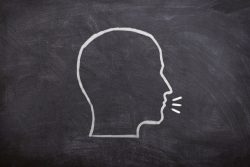“What is the sign of a healthy person? Such a person is happy anywhere. He or she is relaxed everywhere – always at ease and in peace, within and without. Even in hell, such a person will be at ease. A healthy person hates no one, dislikes nothing. Total love, universal love emanates from within. There is no tension anywhere, no stress or friction. These are the signs of real health.”
Swami Satchidananda
Make healthcare truly about you – your personal definition of “health”
From Part I of this Match Game series you have a sense of how a payment system (health insurance) has been setting the playing field determining what constitutes health and well-being for millions of Americans.
To experience healthcare that works for you, we have to change the nature of the game – “reset” our current paradigm. This reset starts with your personal worldview of health and the relationship, or lack of relationship, between the physical, mental and emotional bodies (see related article). This worldview will naturally integrate with your definition of health and well-being.
Crafting your personal worldview of health likely resulted in one of two primary worldviews:
• Newtonian – from the namesake of Isaac Newton. Very simply, in this worldview the world is seen as a mechanical machine. The physical body is like a machine, divided into parts to be worked on like a machine. Mind and emotions have little, if any, impact on the physical being. Healing is rarely considered. Practitioners treat illness or disease in separate parts of the physical body.
• Quantum – from understanding the world through the lens of quantum physics. Very simply, at a quantum level everything is interconnected. Physical, emotional and mental aspects of our being influence each other. Our outer world and inner world are also connected. Consciousness matters. This worldview encompasses healing. Practitioners treat the person, not the disease.
You may have a blended worldview, or a different lens for different circumstances. Whatever your result, keep this in mind as you explore the nature of “health.”
What is health? What is well-being? And, where does healing fit in?
Health does not mean the same thing to all people. Reflect on the nature of health described in the opening quote of this article. It is basically about one’s “being-ness.” No mention of disease or of physical vitality.
Healthcare physicians, practitioners, all have a different view of what constitutes health, which has been influenced by their field study and experience. Physicians can only engage with you from their framework of knowledge and understanding. As a result, for example, you can now see that talking about well-being from a quantum lens with a physician with a Newtonian framework is a mismatch on many levels. It’s likely both of you will be frustrated. Having a mismatched partnership is not a good foundation for well-being and healing.
You deserve health and care that fits YOUR unique being, your worldview. These are very personal decisions. To find people for your healthcare team requires matching healthcare providers concepts of health to your beliefs and principles. The starting point is not a list provided by an insurance company. The starting point is your worldview of well-being and your personal definition of health.
Every medical science, from ancient sciences to current sciences, has a definition or a guiding principle of what “health” means. Just like worldviews, these generally fall into two categories.
Newtonian health science
The current dictionary definition of health is “freedom from disease.” This is the view followed by most allopathic doctors (M.D.s). This is the mechanical worldview. The physical body is a machine made up of parts. Think about that list of practitioners found in health insurance paperwork – it’s a list that divides the body into parts. This health science focuses on disease management. Osteopathic medicine (D.O.s) uses the same tools, treatments and technologies of medicine as M.D.s, so for these very general purposes, they fall in the Newtonian field.
If your worldview is generally Newtonian, you will likely be satisfied with allopathic specialists. For each symptom you may need to seek a new “mechanic” to address different parts of your body. You may be the one coordinating care between the various pieces.
Quantum health sciences
While quantum physics is considered a new science, the ancient medical sciences viewed “health” through a quantum lens ‒ systems of health in which everything is connected. Side effects don’t exist in these older sciences. There are only “effects” because these sciences have studied well-being and the impact of all their treatments and medicines on the entire mind/body/spirit system for hundreds and thousands of years. These health sciences focus on healing, eliminating the root causes of suffering, and balance.
Ancient sciences include:
• Ayurveda is the traditional medicine from India, the sister science of yoga. You may be familiar with this from Deepak Chopra. Ayurveda is the science of life, with a very precise definition of health. “Health is the state where the Tridosha, digestive fire, body tissues and components, and physiological processes are in perfect unison; and the soul and the sense organs and mind are in a state of total satisfaction and content.” While this seems to be a complex definition filled with Sanskrit words, the point is for 5,000 years this science has focused on what a healthy mind/body system is, and how to measure, attain and maintain health.
• Traditional Chinese Medicine (TCM) is derived from Ayurveda, and so there are similarities. Like Ayurveda, it is based on the notion of harmony and balance. Health is viewed as a means to a good life – when an individual lives in harmony with her community and her physical and spiritual environment. Many people are familiar with acupuncture, a primary TCM treatment to create overall balance.
Mid-millennium sciences include:
• Homeopathy, which is about 200 years old, believes one has a state of health when you experience freedom and creativity. It’s interesting to consider how this seemingly simple definition effortlessly integrates physical, emotional, mental and spiritual aspects of well-being. Disease is considered a breakdown of vital forces and can only be known according to symptoms – so all “symptoms” are of equal importance in treating the whole person.
• Naturopathy evolved from homeopathy. Naturopathic medical schools include curriculum a range of medical sciences including TMC, homeopathy and herbal medicines.
If your worldview in primarily quantum, you will likely enjoy a positive relationship with doctors practicing these sciences to experience the essence of health you desire. You may still need (or want) a team approach. You’ll generally find physicians in the quantum sciences understand something about other quantum sciences, so you can actually achieve complementary care (meaning practitioners, treatments and medicines work well together, not in opposition to each other).
Your definition of health is what equips and empowers you to live your best life
Declaring “I want to be well;” or “I just want to not feel bad and get back to my life;” may seem like simple statements to make when requesting that a medical professional be your partner in well-being. As we see from the viewpoints above, it’s not so simple.
This is why it’s really important to know at a very deep level what you’re seeking. Be as clear with yourself as possible. Research the essence of health, well-being, vitality, healing. This article just provides some basic guidance to get you started. Take your time. And also be willing to evolve or change over time. What starts as a quest for pain relief in a very allopathic sense of suppressing symptoms in a particular location may evolve to wanting to experience peace and freedom, regardless of physical challenges.
Being clear on what health and well-being mean to you puts you in the driver’s seat of this healthcare match game. You have now declared your personal “reset” of the vast and complex healthcare system. You can now confidently:
• Identify practitioners who actually fit your needs.
• Know when you have a mismatch and feel comfortable firing medical professionals who don’t resonate with your needs.
• Communicate effectively with your chosen professionals and develop strong partnerships with them.
• Know when to shift approaches if a particular physician or medicine/treatment isn’t working to support your journey to well-being.
• Spend your time, money and energy wisely, in a way that lets you experience your best life.
• Analyze what payment system (insurance) will work for your health, and make decisions based on what care fits your needs. For example, if TCM or homeopathic is a fit for you, seek a payment system that pays for the care you use. Alternatively, be confident that it’s okay to pay for care rather than contributing to an insurance corporation’s profit for “benefits” that don’t fit your needs and therefore you don’t use. .
Resources you may enjoy to explore this further:
–The Quantum Doctor by Amit Goswami, PhD
–The Biology of Belief by Bruce Lipton
–Other inspiring people who offer a range of views for your exploration: Deepak Chopra, MD; Larry Dossey, MD; Greg Brayden and Stephen Schwartz
Note: This is part an ongoing series to equip you with a process, a path, to identify and experience healthcare that works for you.
— Foundation: The heart of healthcare that works: know your personal worldview of health: http://www.hormonesmatter.com/the-heart-of-healthcare-that-works-know-your-personal-worldview-of-health/
— The match Game of healthcare that works series ‒ Part I: Understand the landscape set by insurance companies: http://www.hormonesmatter.com/the-match-game-of-health-care-that-works-part-1/
— The match Game of healthcare that works series ‒ Part II: (current article)
Deb is co-owner of Experience In Motion, which equips organizations with tools to curate meaningful experiences for customers and employees. Deb’s personal journey from decay to wellbeing inspired an emphasis in improving healthcare experiences for patients and practitioners by focusing on experiences that heal, and self-caring as a way of organizational being. www.experienceinmotion.net.





